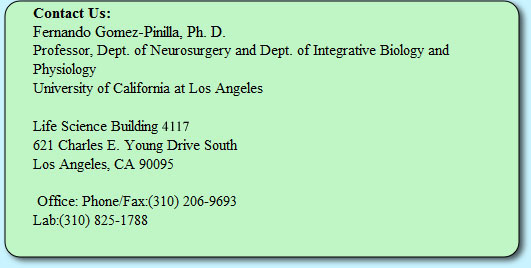


  |
 |
|
Home -> Team Members -> Cameron Feng
|
|
I am working on elucidating the interactions between the brain and spinal cord given the presumption that an injury to either can compromise functions of the other. Former studies and clinical cases hold this presumption to be true: traumatic brain injury (TBI) can produce locomotor dysfunctions dependent on the spinal cord and spinal cord injury (SCI) promotes mood disorders and reduces hippocampal synaptic plasticity. Unfortunately, the mechanisms and extent to which TBI can affect the spinal cord and vice-versa have been poorly studied. Long axons of major ascending and descending fiber tracts connect the brain and spinal cord, providing a direct mode of harm (i.e. excitotoxicity) not unlike local areas of influence due to injury. Yet, interdisciplinary expertise between supra- and infraspinal centers among physicians are limited such that patients of TBI or SCI are rarely treated with the consideration of secondary damage to the respective spinal cord or brain as well. My research focuses on the molecular and behavioral changes with special emphasis on dietary interventions in the hopes of not only revealing the mechanisms of damage as produced by primary TBI or SCI on the spinal cord or brain, respectively, but finding effective treatments and increasing awareness of the causal comorbidity between brain and spinal cord damage, especially in the medical community.
|
Cameron Feng
B.S.
|
 |